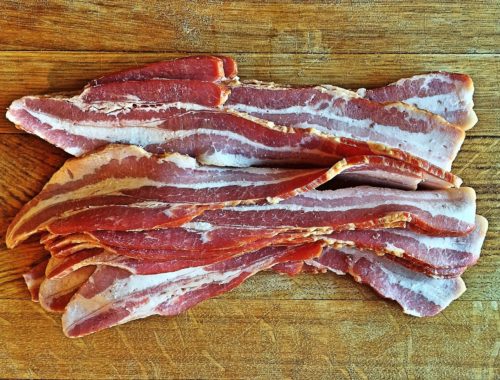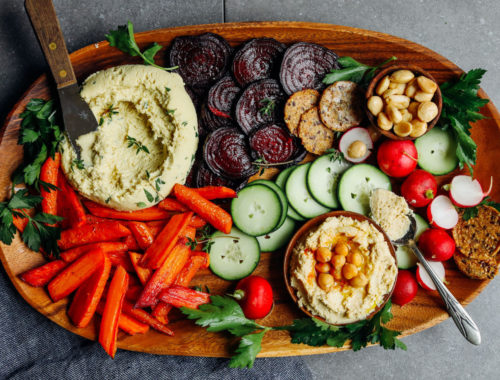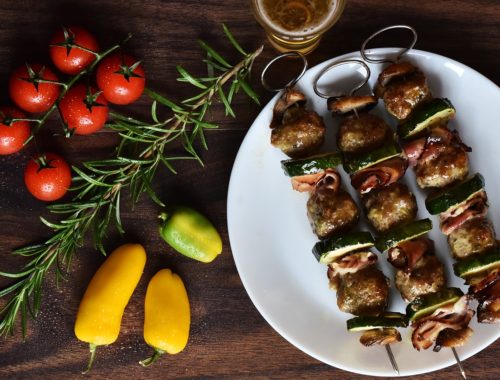Prevent
The Worst Meat for Cancer Risk

From keto to paleo, the latest trendy meat-heavy diets might not be the best choice for your long term health.
Red meat and processed meats (like cold cuts and bacon) can be a big part of these diets, though both have been linked to cancer. Eating just 50 grams of processed meat a day increases your risk of colorectal cancer by 18%, which is only about 4 pieces of bacon.
With Americans set to eat a record breaking amount of meat this year, keep in mind the risks and benefits of your go-to sources of protein.
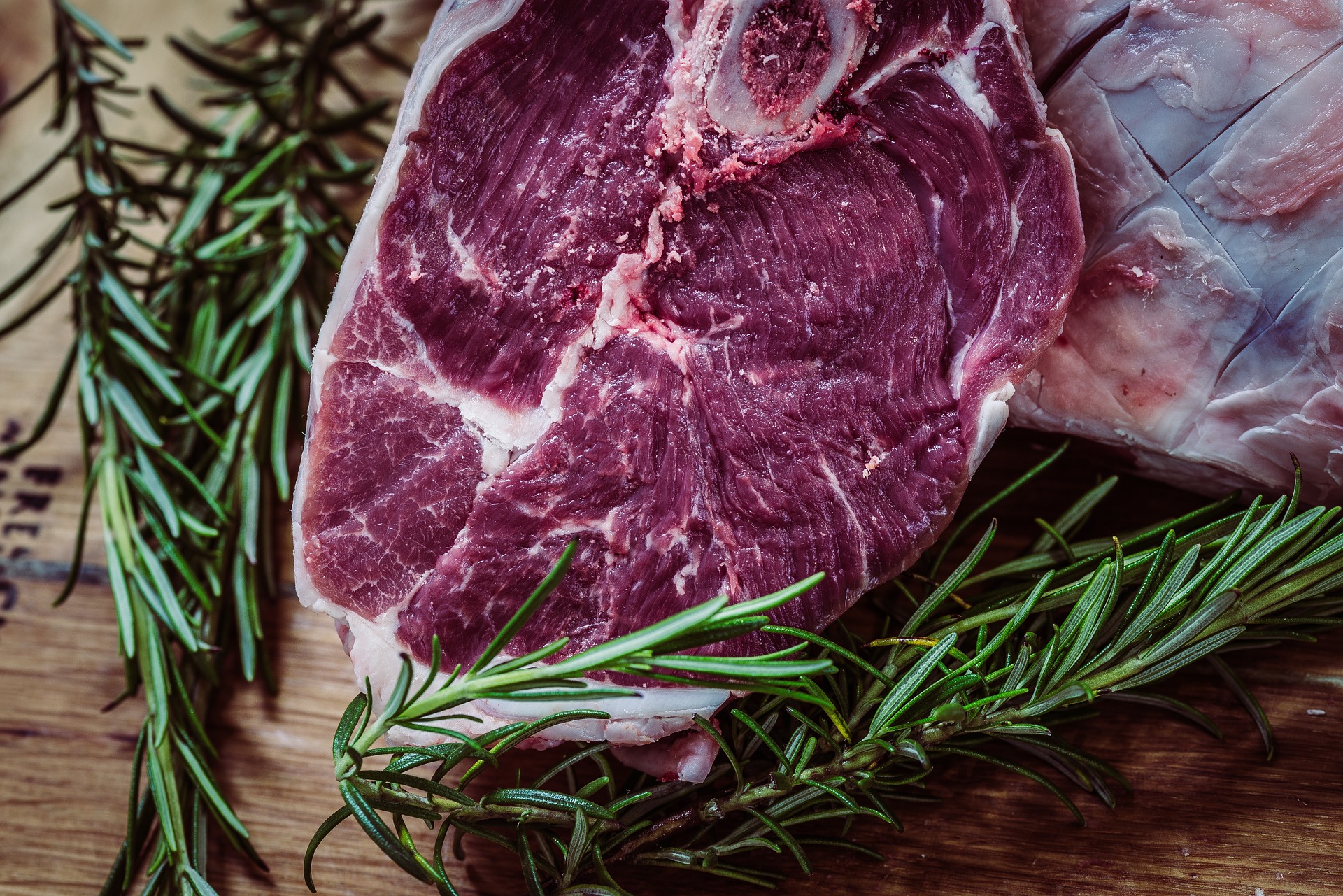
How to ID red and processed meats
Red meat looks like what it sounds like: meat that is red when it’s raw. Red meats come from mammal muscle and includes:
- Beef
- Pork
- Lamb
- Goat
- Veal
Processed meats are treated with techniques like smoking, curing, or adding preservatives to increase their shelf life. According to the USDA 22% of all meat consumed in the United States is processed. Popular processed meat products include:
- Bacon
- Sausage
- Hot dogs
- Deli meats (like pastrami, corned beef, and bologna)
- Jerky
- Spam and other canned meats
- Ham
- Pickled meats (like vienna sausages)

Added and natural chemicals in meat may lead to cancer
The preservatives used in processed meat can create known carcinogens (cancer causing substances) in the body once eaten.
Bacon and other processed meats are treated with nitrates or nitrites—chemicals added to help them last longer and enhance their flavor and color. When these additives mix with the chemicals naturally found in red meat, the resulting effect on the digestive tract has been linked to colorectal cancer risk.
Even bacon labeled as “uncured” or “no nitrate or nitrite added” can still contain potentially harmful amounts of these carcinogens. These meats are often treated with celery powder and other natural alternatives that contain high levels of nitrates.
Studies have also found connections between processed meat and stomach cancer risk. It’s possible this risk is not only caused by nitrates, but the the high amounts of salt used in processed meat as well.
The saturated fat in red and processed meat and the inflammation they cause in the body are also possible factors that can increase your cancer risk.
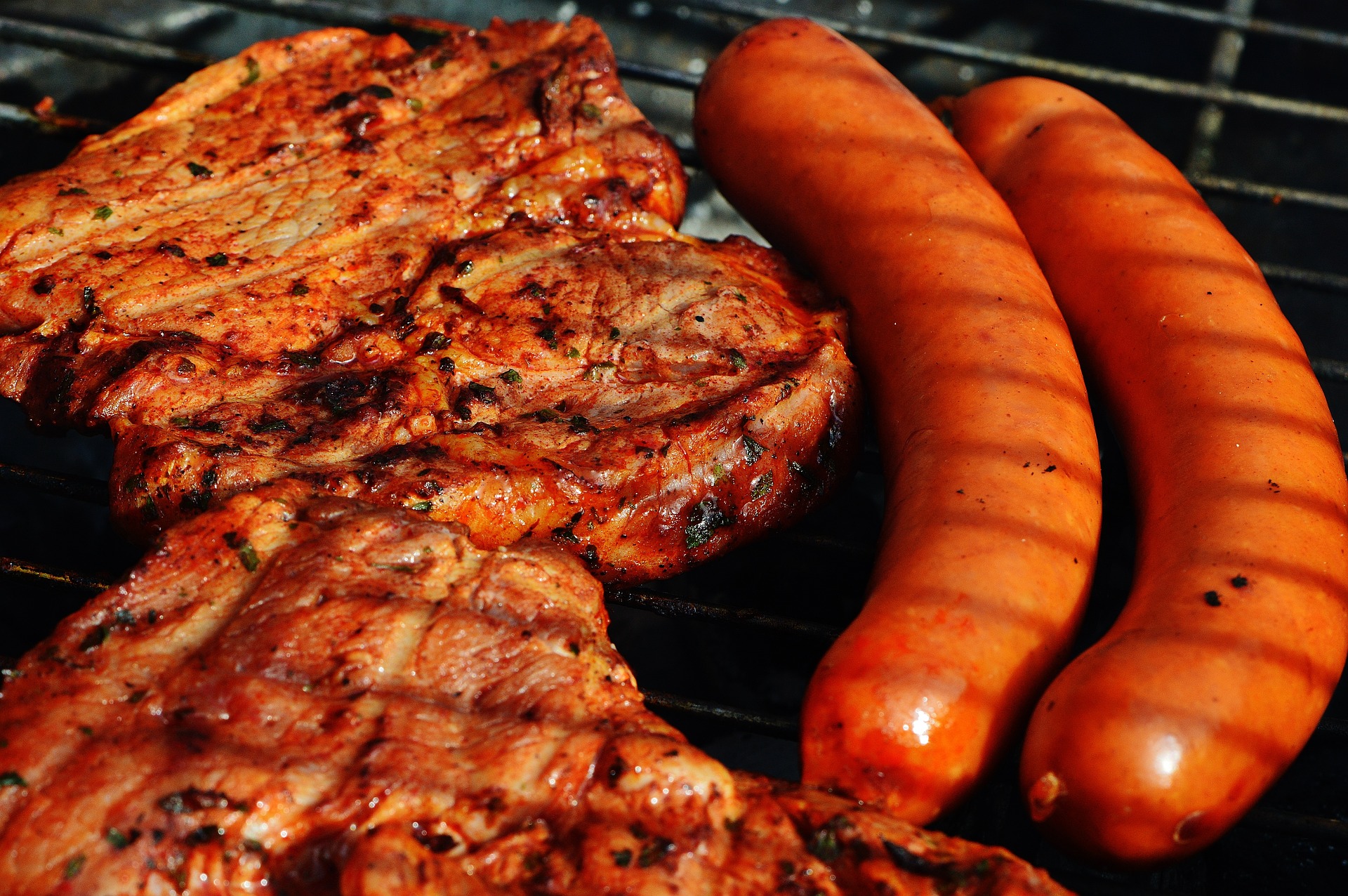
How meat is cooked can affect cancer risk
According to recent studies, the way processed or red meats are cooked can increase the risk they pose to your health. Cooking red meat at high temperatures, even using traditional methods like barbecuing or over a stove, can increase the risk of certain cancers.
Heterocyclic amines (HCAs) and polycyclic aromatic hydrocarbons (PAHs) are chemicals formed when muscle meats are cooked at high temperatures. These chemicals can cause changes in your DNA that may lead to cancer. The longer the cooking time and the higher the heat, the more HCAs are produced.
UC Davis Cancer Center recommends a few cooking habits that can help reduce your cancer risks:
- Watch out for meat that is a bright, pinkish color (it likely means chemicals were used to process it)
- Partially microwave meat before cooking at high temperatures (for example, pre-cooking a hamburger a few minutes can remove up to 95% of HCAs)
- Flip meat often when cooking at high temperatures
- Remove charred portions of meat
- Marinate meat before grilling (this can help reduce HCAs)
- Don’t cook meat to “well done” (use a meat thermometer to cook ground beef, pork, and lamb between 160°-170°F., and beef steaks and roasts to 145°-160°F.)
- Do not use meat drippings to make gravy or sauces

Avoid Processed Meat and Limit Red Meat to Reduce Cancer Risk
The American Institute for Cancer Research (AICR) recommends having only up 3 portions of red meat per week. That’s about 3.5 ounces of meat per serving or the size that would fit in the palm of your hand.
Processed meat, on the other hand, should be avoided when possible or only eaten on special occasions.
There are many benefits to replacing red meat with lean meats (like fish or poultry) or plant-based sources of protein. Practicing a Mediterranean diet adds more veggies and whole grains to your meals, while allowing you to enjoy the occasional steak and reducing your cancer risk.

